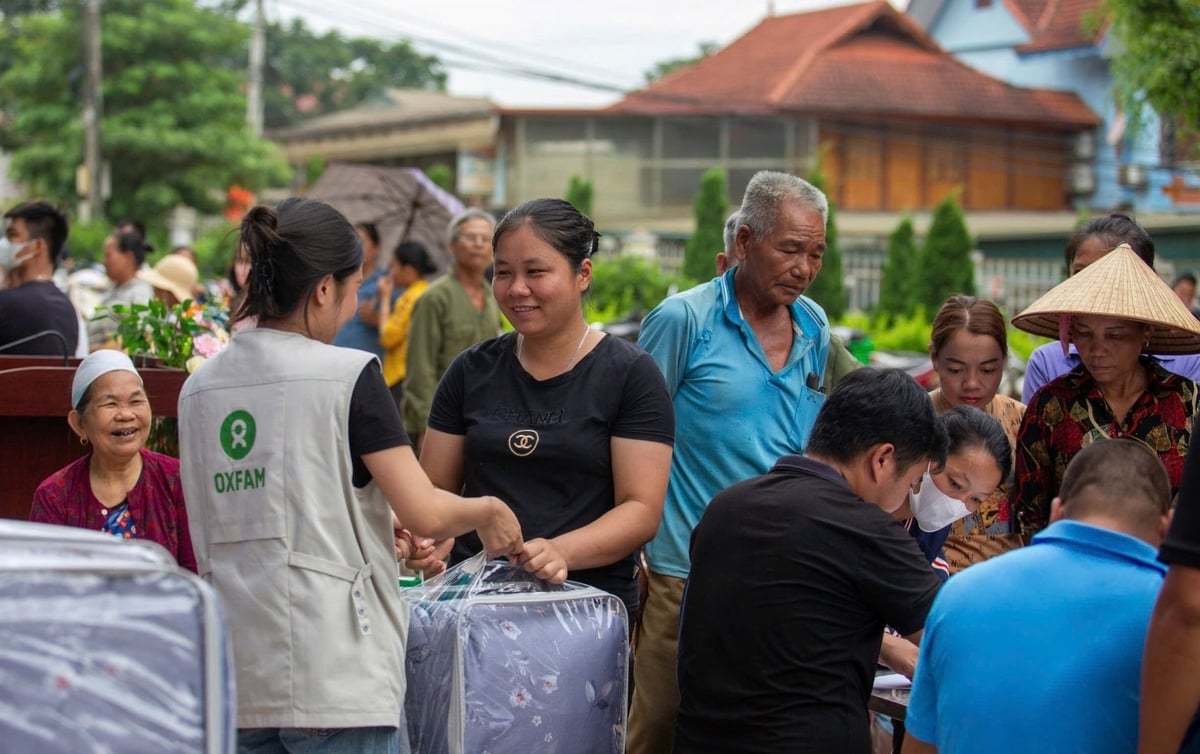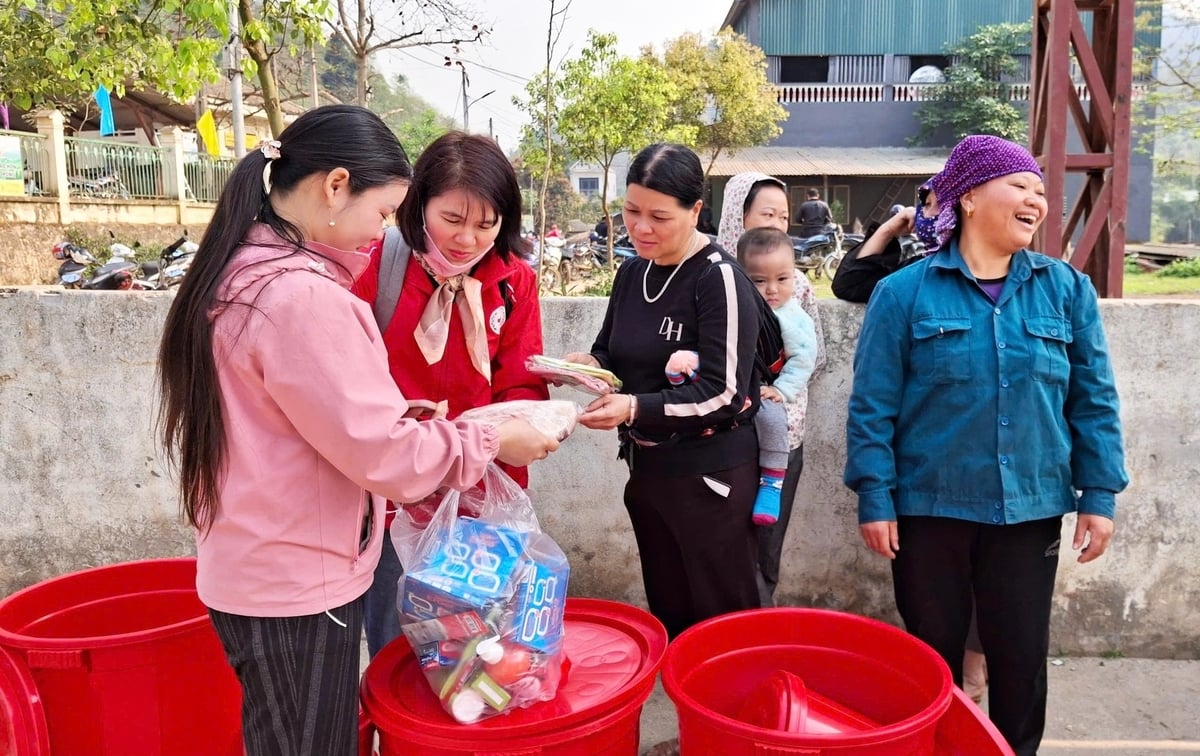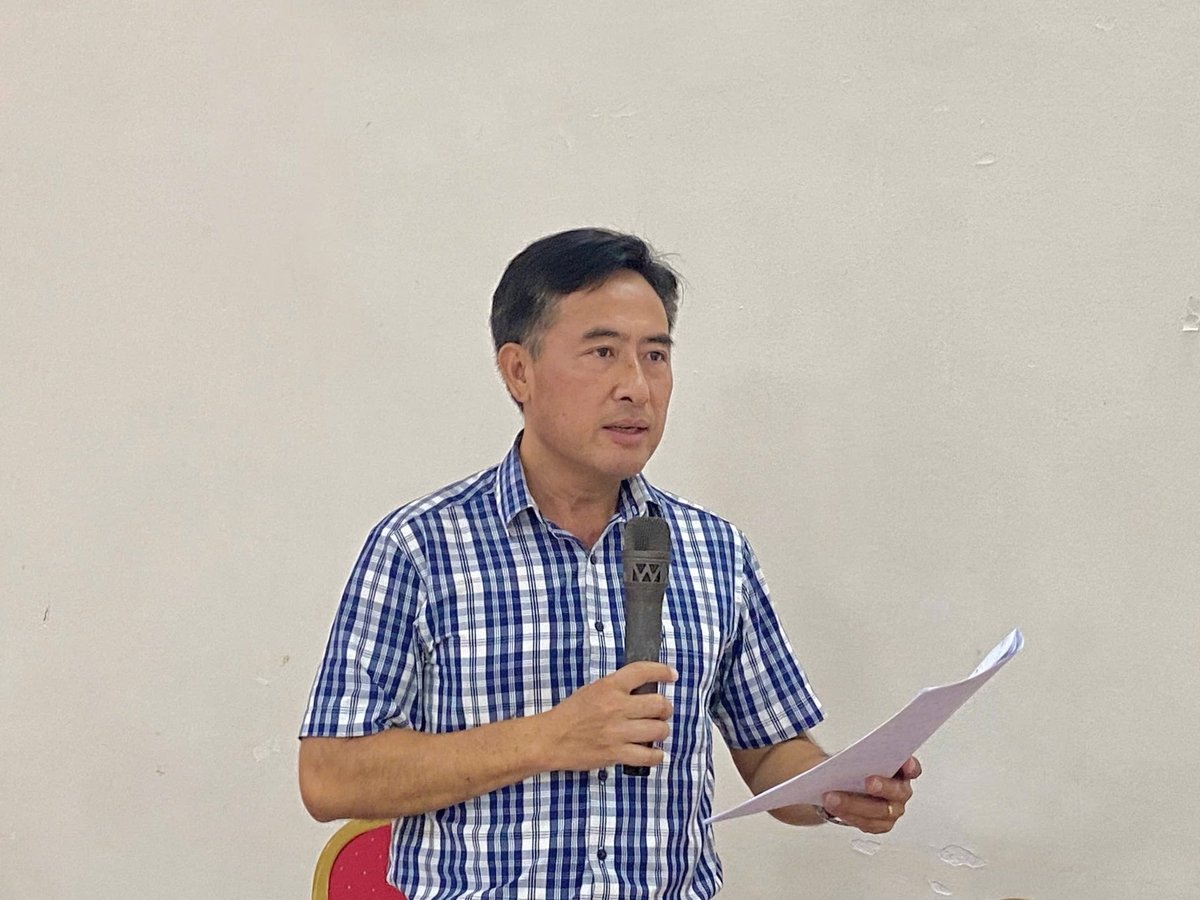December 6, 2025 | 01:54 GMT +7
December 6, 2025 | 01:54 GMT +7
Hotline: 0913.378.918
December 6, 2025 | 01:54 GMT +7
Hotline: 0913.378.918
Typhoon Yagi caused an estimated economic damage of over 84.544 trillion VND, hundreds of thousands of homes were damaged or flooded, and 231,484 hectares of rice were submerged. These severe impacts particularly affected vulnerable groups such as women, girls, poor households, near-poor households, and people with disabilities.

Oxfam mobilized nearly 1.5 million USD (equivalent to over 38 billion VND) from its own resources and international donors. Photo: Oxfam.
Responding to the call from the Government and local authorities, Oxfam, the Hoa Binh Provincial Women's Union (now Phu Tho province), the Lao Cai Provincial Red Cross, and local partners implemented the 2024 Post-Typhoon Yagi Recovery Project in 15 communes across three provinces: Hoa Binh, Yen Bai, and Lao Cai.
The project received timely attention and support from international donors, mobilizing a total financial resource of nearly 1.5 million USD (over 38 billion VND) from its own funds and international donors. The project implemented many key activities to enhance food security and livelihood recovery, while also improving clean water, sanitation, and promoting gender equality.
As of the end of July 2025, the project had supported over 45,000 people in 15 communes across the 3 provinces. This included over 1,858 households receiving 3 million VND per unconditional cash support to meet urgent needs, and 1,210 cash supports provided to farmers to facilitate production recovery.

The project also provided an additional one-time cash support for frontline women actively involved in disaster prevention and response activities. Photo: Oxfam.
Concurrently, the project conducted an in-depth assessment of food security and livelihoods in Lao Cai and Yen Bai (formerly) to accurately identify priority needs. Notably, the "labor exchange for income" program generated 1,490 working days, helping people to rehabilitate agricultural infrastructure, roads, and irrigation systems.
Additionally, farmers participated in agricultural technical training and received input materials for crop recovery, as well as disaster prevention and search and rescue skills training for core local forces.
The project significantly improved clean water and sanitation after the typhoon by distributing 3,210 water containers and hygiene kits (prioritizing women/girls), organizing hygiene communication, checking water quality, and providing 2,860 emergency aid packages (cooking oil, warm blankets).
In parallel, the project also integrated gender equality and protection of vulnerable groups through awareness raising, community consultation, GEDSI training, establishing feedback mechanisms (including a hotline against gender-based violence), and providing cash support to frontline women.
During implementation, the project faced some challenges due to the merger of administrative units at the commune and provincial levels, and the elimination of the district level. The process of obtaining approval for relief projects in some provinces was slow, affecting the timeliness of aid.

Mr. Pham Quang Tu, Deputy Country Director of Oxfam in Vietnam, expects this project to be a good opportunity for relevant parties to continue contributing lessons learned to further improve disaster relief efforts in the future. Photo: Minh Ha.
Mr. Pham Quang Tu, Deputy Country Director of Oxfam in Vietnam, expressed his desire for state management agencies to review and update guiding documents to accelerate the approval process. This would help people and vulnerable communities receive humanitarian aid more promptly and effectively, creating a favorable legal framework to mobilize maximum resources when natural disasters, storms, floods, or epidemics occur.
With extensive experience in humanitarian relief and post-disaster recovery worldwide and in Vietnam, Oxfam believes that investing in disaster risk reduction is a crucial factor, helping to connect emergency support with early recovery and sustainable development.
Specifically, it is essential to prioritize the needs of women, girls, and vulnerable groups to enhance communities' ability to prevent, proactively respond to, and build long-term resilience against natural disasters and climate change.
Typhoon Yagi, which struck Vietnam in September 2024, was one of the most powerful storms to hit the country in decades, causing catastrophic damage across numerous northern provinces. Initial estimates from the Vietnamese government placed economic losses at over 81 trillion VND (approximately 3.3 billion USD), with some reports indicating the figure could exceed 84 trillion VND. The typhoon brought relentless winds and torrential rains, triggering widespread flash floods and landslides that devastated both urban and rural areas. Hundreds of thousands of homes were damaged, submerged, or completely destroyed, while essential infrastructure like roads, bridges, power grids, and telecommunication networks suffered extensive damage, severely disrupting daily life and economic activity. Beyond the immediate destruction, Typhoon Yagi profoundly impacted livelihoods, particularly in the agricultural sector, where vast areas of rice paddies and other crops were submerged or wiped out, and countless livestock perished.
Translated by Linh Linh

(VAN) As of 2025, the ASEAN region has a total of 69 ASEAN Heritage Parks recognized across its 10 member states. Among them, Viet Nam contributes 15 ASEAN Heritage Parks.

(VAN) Yok Don National Park has high biodiversity with numerous endemic plant and animal species, and it is also the only dipterocarp forest ecosystem conservation area in Viet Nam.

(VAN) Viet Nam and Brunei signed two important MOUs on fisheries and IUU, expanding cooperation in agriculture, the environment, and Halal exports, aiming to substantively implement joint projects.

(VAN) The Viet Nam Coconut Association worked with the International Finance Corporation (IFC) and businesses to promote the supply chain, enhance competitiveness, and develop the coconut industry sustainably.
![Hue aims for Net Zero: [2] Pioneering low-emission tourism](https://t.ex-cdn.com/nongnghiepmoitruong.vn/608w/files/huytd/2025/12/04/0633-dulichzero-4-095634_236-161125.jpg)
(VAN) The ancient capital of Hue has developed Net Zero tourism products and models, aiming to reduce carbon emissions and pioneer the establishment of Viet Nam's green tourism destination.

(VAN) C.P. Viet Nam has announced the successful completion of its goal to plant 1.5 million trees during the 2021-2025 period, a key milestone within company's long-term ESG strategy and its roadmap for emission reduction.

(VAN) This is an initiative of MAE aimed at creating a unified coordination mechanism to implement agricultural cooperation programs with developing countries.